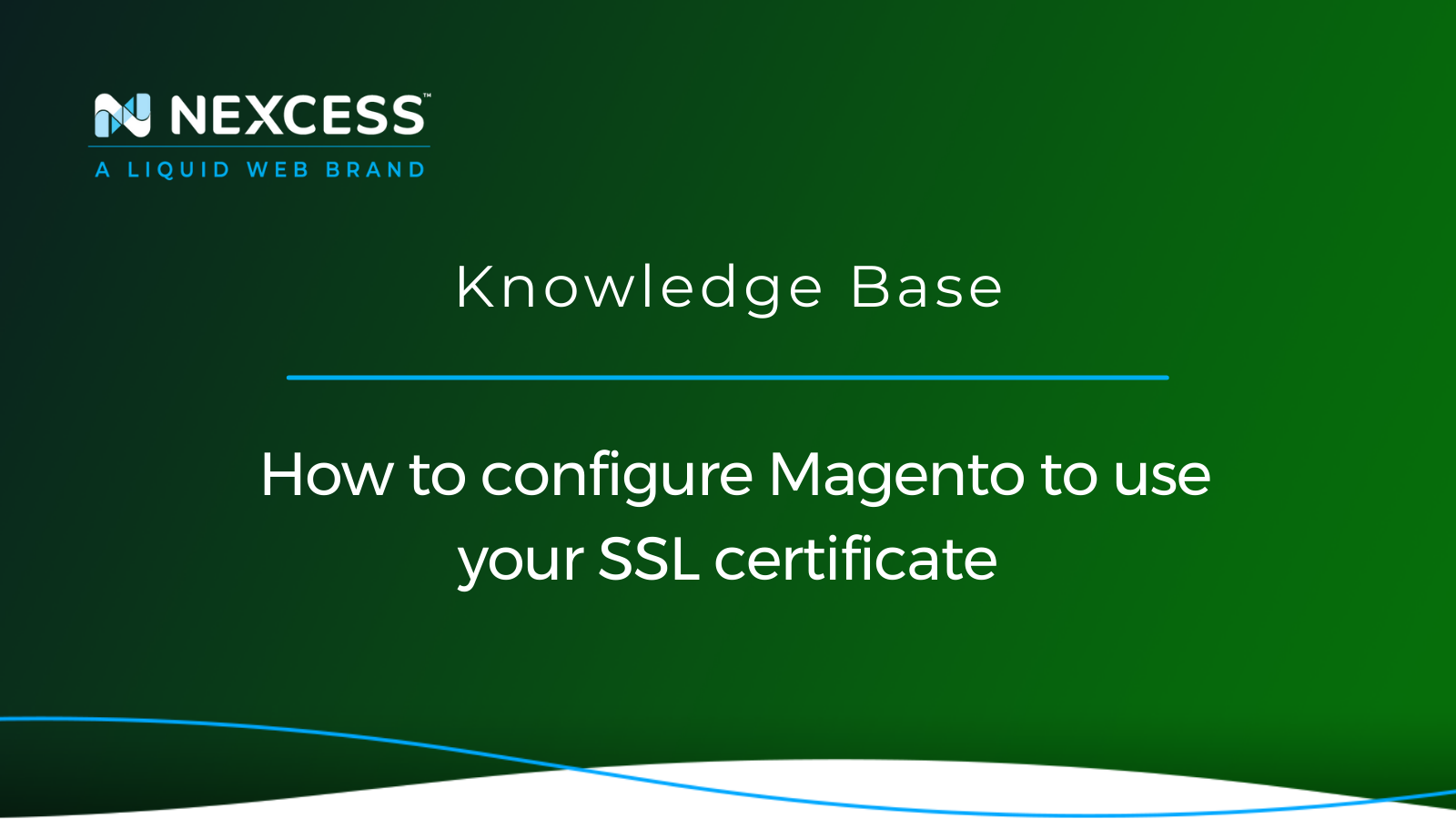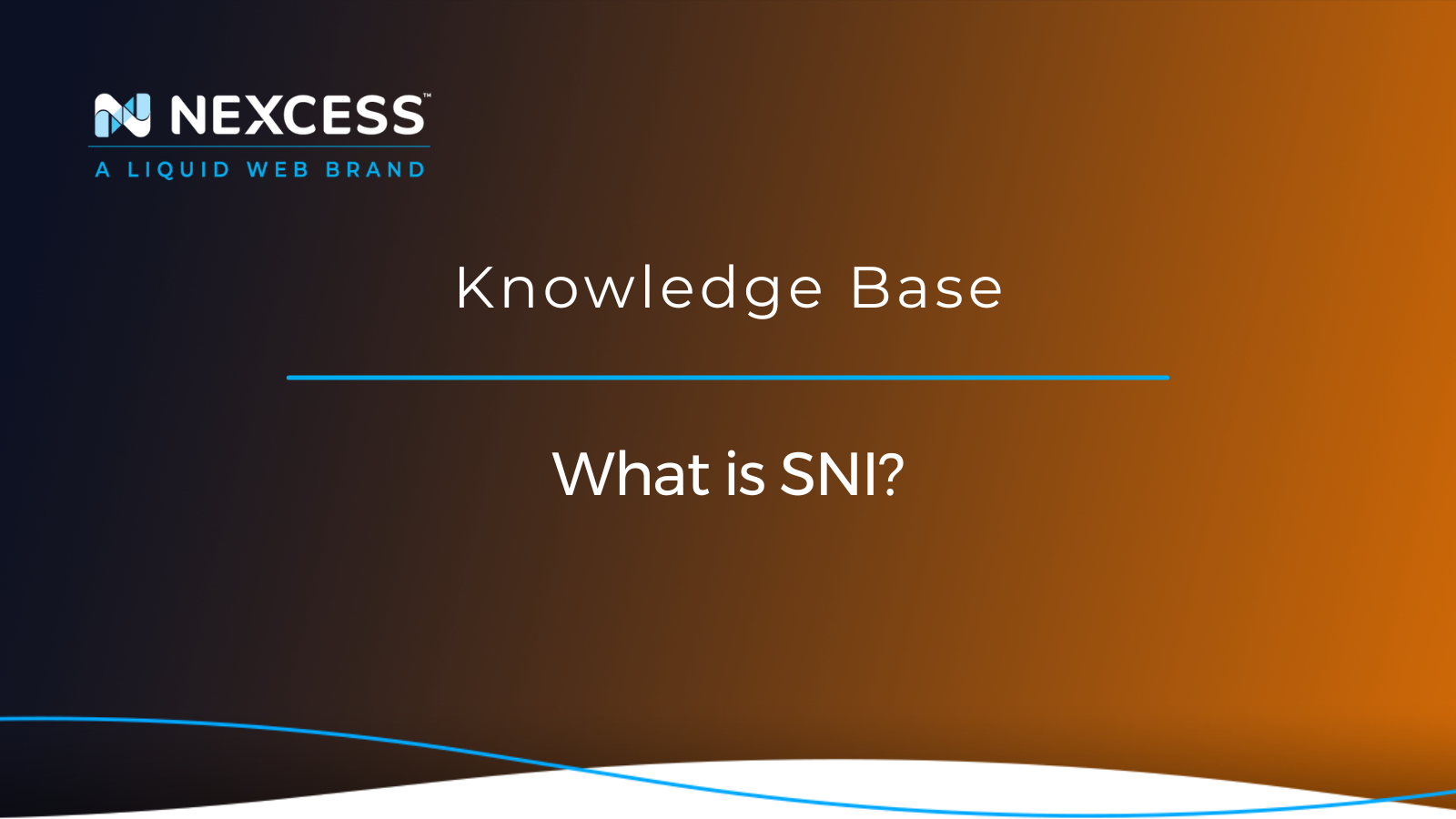
Nexcess Knowledge Base
June 12, 2023
By Nexcess
How to configure Magento to use your SSL certificate

Learn how to configure your Magento store to use a Secure Sockets Layer (SSL) certificate, which allows your site to exchange encrypted information with web users.
Posted in:
December 15, 2022
OpenSSL CSR generation with private key
September 11, 2019
By Nexcess
How to buy wildcard SSL certificate
September 11, 2019
By Jason Dobry
How to generate a CSR in Nexcess Cloud

How Nexcess Cloud clients can generate a CSR for use when applying for SSL certificates.
Posted in:
September 10, 2019
By Nexcess
How to resolve the SSL warning when logging in to SiteWorx

Why you may ignore the SSL warning within SiteWorx when using a dedicated server.
Posted in:
September 09, 2019
By Jason Dobry
What are SSL certificates?
September 09, 2019
By Jason Dobry
How to cancel a SSL certificate

How to cancel an existing SSL certificate attached to a Nexcess service from within your Nexcess Client Portal.
Posted in:
September 09, 2019
By Jason Dobry
What is an extended validation (EV) multi-domain SSL certificate?
September 09, 2019
By Jason Dobry
What is SNI?
September 09, 2019
By Jason Dobry
What is a self-signed SSL certificate?
Grow your online business faster with news, tips, strategies, and inspiration.
- .htaccess
- Affiliates
- Applications
- Backups
- Billing
- Business
- CDN
- CDN SSL
- Client Portal
- Content Delivery Networks (CDNs)
- Control Panel Tools
- Craft CMS
- Cron Jobs
- Databases
- Dev Sites
- Domain Management
- Drupal
- Ecommerce
- Enterprise Hosting
- ExpressionEngine
- FTP
- File Management
- Getting Started
- Hosting
- IP Management
- Magento
- Magento 1
- Magento 2
- Membership sites
- Miscellaneous
- Nexcess
- Nexcess Email Services
- NodeWorx
- Other Applications
- Other Best Practices
- PCI DSS
- PWA
- Performance
- Reports and Monitoring
- SSH
- SSL
- Scripts
- Security
- SiteWorx
- StoreBuilder
- Third Party Clients
- WPQuickStart
- Web design
- Web development
- Website Management
- Websites
- WooCommerce
- WordPress


